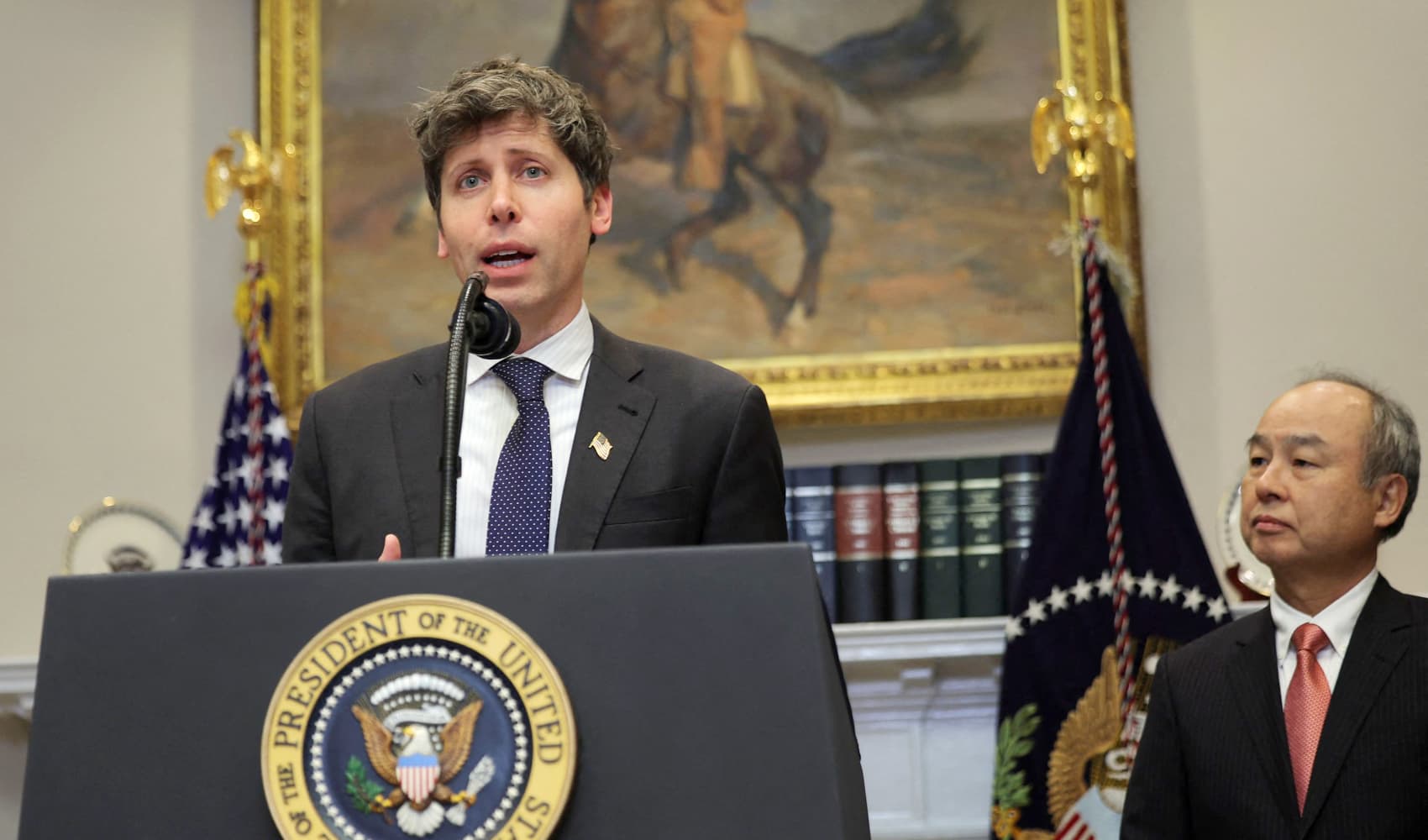OpenAI Restructure Approved: What's Microsoft's Next Move?
OpenAI's Bold Restructure: SoftBank Approves, Microsoft Next?
Introduction: The AI Landscape Shifts Again
The world of artificial intelligence never sleeps. And in the latest chapter of this fast-paced saga, OpenAI, the creator of revolutionary technologies like ChatGPT and DALL-E, is shaking things up with a planned restructure. But here's the kicker: SoftBank, a major investor, has given its nod of approval. So, what does this mean for the future of OpenAI, and perhaps more importantly, what’s Microsoft's stance? Let's dive in and unpack this exciting development.
SoftBank's Green Light: A Vote of Confidence
SoftBank's finance chief Yoshimitsu Goto, during a recent earnings press conference, stated that "nothing has really changed" with OpenAI and its restructure plan. This statement, seemingly simple, carries immense weight. It signifies that one of OpenAI’s biggest backers isn’t just okay with the change – they *expected* it.
Decoding Goto's Statement
Goto's words, as translated from Japanese, suggest a pre-existing understanding and alignment with OpenAI's vision. "I don’t think that’s the wrong direction… that’s something that we expected," he said. Think of it like this: SoftBank isn't just along for the ride; they helped chart the course. This is a critical distinction.
The Restructure Plan: Non-Profit in the Driver's Seat
The core of OpenAI's restructure involves its non-profit arm retaining ultimate control over the for-profit entity. This isn't just a technicality; it's a philosophical statement about the company's commitment to responsible AI development. Is this a move to reassure the public and regulators that profit motives won’t trump ethical considerations?
Why SoftBank's Approval Matters
SoftBank’s endorsement is more than just a pat on the back. It's a key piece of the puzzle because the Japanese firm's substantial investment – [content truncated] - demonstrates faith in OpenAI's long-term strategy. Without the support of major investors, even the most innovative companies can struggle.
Microsoft's Position: The Elephant in the Room
While SoftBank's approval is significant, all eyes are now on Microsoft. Why? Because Microsoft has invested billions in OpenAI and integrated its technologies into numerous products. Their perspective is paramount.
A Strategic Partnership: Is it in Jeopardy?
Microsoft's deep integration with OpenAI means they have a vested interest in its stability and direction. Will they publicly support this restructure? Or will they express reservations? Their response could significantly influence the future trajectory of OpenAI.
Public Benefit Corporation: A New Model for AI?
OpenAI's transformation into a public benefit corporation (PBC) is noteworthy. A PBC balances profit-making with a specific public benefit purpose. This model, relatively new, is gaining traction among socially conscious companies. Does it represent the future of AI development?
The Ethical Implications: AI for Good?
The non-profit oversight of the for-profit arm raises crucial ethical considerations. Will this structure effectively prevent the misuse of AI technology? Or are there loopholes that could be exploited? The world is watching to see how OpenAI navigates this complex terrain.
The Competitive Landscape: Keeping Ahead of the Curve
The AI landscape is fiercely competitive. Companies like Google, Meta, and Amazon are all vying for dominance. OpenAI needs to innovate constantly to stay ahead. Will this restructure help or hinder their ability to compete?
Potential Benefits of the Restructure
There are several potential benefits to this new structure:
- Increased Transparency: The non-profit oversight could lead to greater transparency in OpenAI's operations.
- Enhanced Ethical Oversight: The focus on public benefit could strengthen ethical safeguards.
- Attracting Top Talent: A commitment to responsible AI development could attract talented individuals who want to make a positive impact.
Potential Challenges of the Restructure
The restructure also presents potential challenges:
- Slower Decision-Making: The involvement of the non-profit arm could slow down decision-making processes.
- Investor Concerns: Some investors might be wary of the limitations imposed by the public benefit corporation model.
- Balancing Profit and Purpose: Striking the right balance between profit-making and public benefit can be difficult.
The Future of AI Governance: Setting a Precedent
OpenAI's restructure could set a precedent for how AI companies are governed in the future. Will other companies follow suit? Or will they pursue different models?
The Long-Term Impact: Shaping the Future of Technology
Ultimately, the success of OpenAI's restructure will depend on its ability to deliver on its promises of responsible AI development. If successful, it could help shape the future of technology for the better.
Expert Opinions: What the Analysts are Saying
Industry analysts are divided on the potential impact of OpenAI's restructure. Some believe it's a positive step toward responsible AI development, while others are more skeptical. What will be the consensus in a year?
Conclusion: A Pivotal Moment for OpenAI
OpenAI's restructure, with SoftBank's blessing, marks a pivotal moment for the company and the AI industry as a whole. The success of this new model hinges on Microsoft's support and OpenAI's ability to balance profit with purpose. The world is watching to see what happens next.
Frequently Asked Questions
- What is a public benefit corporation (PBC)? A PBC is a type of for-profit corporation that is legally obligated to consider the interests of stakeholders, not just shareholders. It must also pursue a specific public benefit purpose.
- Why is SoftBank's approval important? SoftBank is a major investor in OpenAI. Their approval signifies confidence in the restructure plan and the company's long-term strategy.
- How might this restructure impact OpenAI's ability to compete with other AI companies? The impact is uncertain. While increased transparency and ethical oversight could attract talent and build trust, slower decision-making could hinder their ability to innovate quickly.
- What role does Microsoft play in all of this? Microsoft has invested billions of dollars in OpenAI and integrated its technologies into its products. Their stance on the restructure is crucial.
- Will this restructure prevent the misuse of AI technology? The restructure aims to strengthen ethical safeguards, but it's not a foolproof solution. Ongoing vigilance and responsible practices are essential to prevent misuse.
